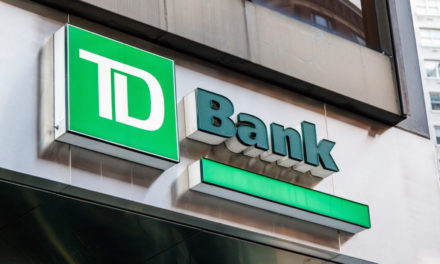This is the second half of our summary of Memphis’ Strong Towns’ report by Chuck Marohn. The first part of this summary was published Tuesday. The 17 pages of the report provide a contextual framework for anyone who cares about Memphis’ economic success, about smart and better investments that pay the best dividends, and about the kind of city that Memphis can be.
Elvis Presley Boulevard
“Elvis Presley Boulevard has to be the most frequently driven corridor by visitors to Memphis. In that context, it falls to accurately represent what is truly great about Memphis, and, in doing so, is a huge burden for the city to overcome. It is an uncomfortable street to travel, an unfriendly place to visit, and consequently, Memphis is failing to leverage the legacy of Elvis Presley to the full advantage of the community.
“As it currently sits, improvements to Elvis Presley Boulevard are being handled by the Division of Public Works, with assistance from the Division of City Engineering, because it is looked at as a maintenance project. Those enhancements are more designed to mitigate the negative aura of the corridor than to elevate Memphis to a new level of prosperity. Besides some modest aesthetic improvements, there are pretty low expectations for impacting the long-term prosperity of this area.
“There is enough at stake here to prompt a reevaluation of this project. I would recommend that Memphis commission a cross-disciplinary team to look at this corridor and put together a true, value-creation project. Such an effort will evaluate the cross section being used, balancing the need to move traffic with the need to increase the value of adjacent properties, evaluate the city’s regulatory environment and identify obstacles to private sector investment in this corridor, recommend improvements that maximize the long-term return on investment for this project, and evaluate the adjacent neighborhoods and recommend ways to leverage the corridor improvements to create value in those areas.
“This approach is as much of an art as a science. Your team needs to consist of not just engineers and code officials but a site designer, architect, financial analyst, housing expert, retail expert, and other professionals trained in value creation.
Annexation
These transactions have largely been an exchange of nominal, near-term growth in the tax base for an assumption of significantly greater, long-term liabilities. As time has gone on, these low-return investments have become a liability, not an asset, for the city.
The City of Memphis should not be seeking to growth through additional annexation. In the coming years, there is the fair possibility that the City will actually need to look into detachments (which is the opposite of annexation) of remote areas, places where providing municipal services is not viable. Halting annexations is an easy first step to take and should be done immediately.
Economic Hunting and Gardening
The standard approach to local economic development – which Memphis has embraced – most often has the city looking outside of the community to attract a new business and bring it to town. We’ll call this Economic Hunting.
For this approach to be successful, the city looking to attract new business needs to primarily concern itself with keeping costs down. When subsidies are thrown in on top of that, the city may experience short-term successes, but it is harming the long-term entrepreneurial culture that is necessary for sustained prosperity.
Communities that rely on an Economic Hunting strategy frequently find themselves making large, risky best on the future. The recent Electrolux deal that the city went through has many of these aspects to it. The city’s relationship with FedEx is another derivation of this approach.
An alternative to the hunting model is an approach pioneered in Littleton, Colorado, and now being used across the country called “Economic Gardening.” In contrast to the hunting model that looks to bring new businesses in from outside of the community (or prevent existing businesses from leaving), economic gardening focuses on growing those businesses that already exist in the city.
This is much more than business retention and expansion, which tends to focus on subsidies and access to capital. This can be done with modest public resources but with astounding success. While economic gardening approach does not create a lot of grand opening celebrations of ribbon cutting events as signals of progress, it does generate real results. And it does it in a way that utilizes local talent, local capital, and local markets. The businesses that grow through this program are going to be deeply embedded in Memphis. They will be less concerned about receiving subsidies and forcing the city to lower its costs.
Recommendations
- The central focus of all capital improvement spending must be about adding real, measurable value to the neighborhoods of Memphis. Funds should not be spent or allocated to a project until a plan to maximize the public’s return on that investment is in place.
- Many small, incremental projects and initiatives are preferable to a few, large transformational ones. Any future, large project must be the culmination of many smaller, successful projects and not a desperate attempt at a silver bullet solution.
- There can be no more horizontal expansion for the City of Memphis. All future development needs to focus on making productive use of current infrastructure investments.
- Congestion is not a problem; it is a symptom of unproductive land use policies. The Memphis region lacks the revenue to fight congestion and must instead focus resources on improving the productivity of its existing neighborhoods.
- There is no viable way to import a sufficient number of quality jobs to make a real different for Memphis residents. The only way to expand opportunity and improve the quality of life for Mmephis residents is to grow from within incrementally over time. The energy and resources of Memphis must be overwhelmingly focused on building from within.
Five Broad Recommendations
Stop
Stop the programs, policies, and actions that are weakening the overall social and financial health of Memphis. Halt the extension of utilities beyond areas currently served for the next 12 months. New connections on the existing system should be welcome, but the city should not extend utility lines to serve new areas. Place a 12 month moratorium on the acceptance of new roads and streets into the city’s inventory. Halt all work being done to annex additional property. Suspend work on capital improvement projects that are being undertaken to expand capacity, fight congestion, or extend public services to new areas.
Take Stock
Memphis needs to do a full evaluation to determine its long-term obligations. The city needs to prepare a real capital improvements plan instead of it being simply a wish list of future projects. The plan should list all infrastructures that the community is committed to maintain, including park facilities and public buildings; estimate the useful life and remaining capacity of each; estimate the cost of repairs when that useful life is completed; estimate the cost of expansion for infrastructure components that have limited capacity; correlate these values with value of the area served by the improvements; estimate the revenue stream available to support these commitments; develop a capital improvement plan within the given revenue projections; perform a productivity analysis showing the tax return per acre throughout the City of Memphis; and inventory properties currently held by the City and assess them for their development potential.
Start Triage
Some informed decisions can be made on targeting scarce public resources and on the long-term viability of certain components of the city’s infrastructure. The completed capital improvements plan will identify areas where funds are not going to be available to maintain essential infrastructure. In these areas, work with property owners to develop a plan to privatize infrastructure systems; reduce the scale of existing infrastructure systems on the next maintenance cycle; convert to less expensive infrastructure alternatives on the next maintenance cycle; obtain petitions and support for special assessments and other locally-generated revenue targeted to infrastructure maintenance; and consider strategies for detachment and allow these properties to leave the municipality; and develop a program to utilize vacant, city-owned buildings for economic development.
Commit to Always Add Value
The City of Memphis needs to embed a culture of value creation throughout its entire government, making it one of the key objectives of each staff members and each dollar spent. Utilize the swam process to improve the city’s financial return on the Elvis Presley Boulevard project, and concurrently, train the city’s staff on approaches to capture value; pass by or relinquish funding that does not strengthen Memphis over the long term; and develop a return on investment analysis to be applied to all new developments where infrastructure maintenance is to be assumed by the city.
Reorient Systems
City of Memphis needs to move from a hierarchical, department-based system of service delivery to a geographic-based team system. The focus of these multi-disciplinary teams has to be on adding value and improving the overall quality of life for each neighborhood in the city. Establish a pilot program within city government to add a “value creation team” to coordinate capital improvement projects; reform the MPO; and launch a pilot project to bring economic gardening to Memphis.





Thanks for covering this. Is Mr. Marohn’s report available to the public?
Please send your email to tjones@smartcityconsulting.com and we’ll get it to you.
“There is no viable way to import a sufficient number of quality jobs to make a real different for Memphis residents. The only way to expand opportunity and improve the quality of life for Mmephis residents is to grow from within incrementally over time. The energy and resources of Memphis must be overwhelmingly focused on building from within.”
We should all write this on our hearts and minds!